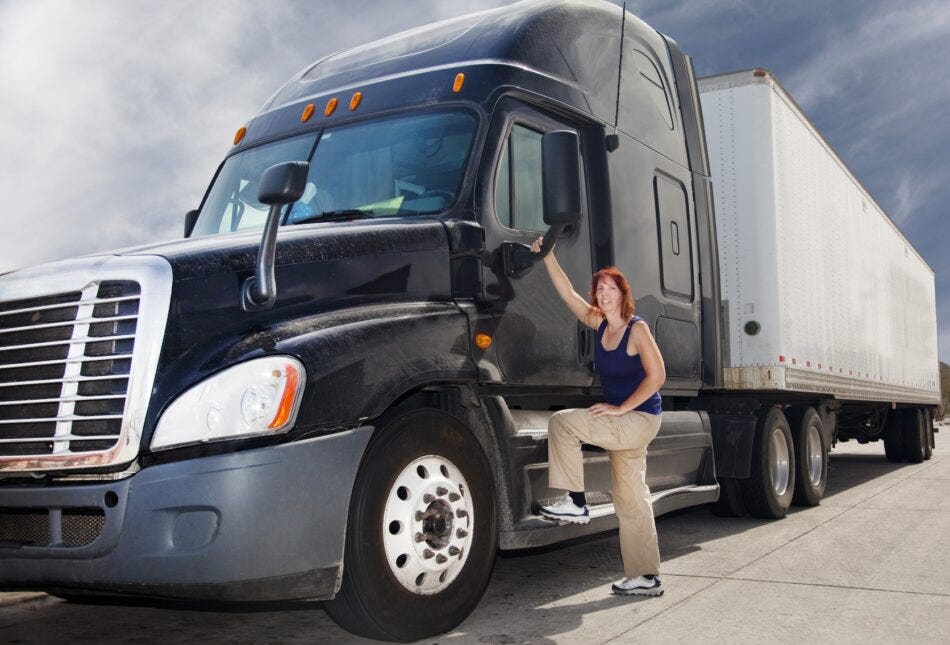When hiring an employee to sit behind the wheel of a company asset it’s important to know that when you hand over the keys you’ve hired the right kind of driver. Not only do you want a respectful courteous person who can interact with clients and suppliers but a safe driver that will obey the rules of the road and will work hard to protect your company name and vehicle.
There’s another reason why you want to hire the right person for the job: Because as the owner of the business and vehicle you are ultimately responsible for how your driver’s conduct themselves on the road and in public.
To hire the right commercial driver here’s what you need to know:
No. 1: A hiring policy is a must
While lots of business owners attest to the validity of their gut-reaction when it comes to minimizing liability it’s important to establish a hiring policy.
To do this you must first become familiar with any provincial or federal rules regarding job postings interviewing and hiring. A good place to start is the Government of Canada’s labour standards site. From there you can look at federal and provincial regulations that govern employee interviews and hiring procedures. You can also check out the federal government’s Hire and Manage Employees page which offers tips on recruiting benefits employee termination wages and human resource issues.
Once you understand the regulations that govern hiring a driver you can then turn your attention to creating a job ad. The Canadian Federation of Independent Businesses (CFIB) suggests preparing a description of tasks functions and responsibilities. Remember your goal is to select the best candidate for the position to do that you need to have a clear conception of the tasks required to complete the job and the skills required for your new hire.
No. 2: The interview
While there are many resources on how best to conduct interviews keep in mind that the goal is to find the most suitable candidate for your specific commercial driver job. A good way to do this is to be up-front with the job requirements. Before starting the interview explain to the candidate what the job entails and what your company requires. This will help all applicants to understand that the interview is just one step in your hiring process; they will also be subject to a validation process that includes a background check as well as a review of their motor vehicle report.
By structuring the interview this way you establish two things: factual responses to questions asked of the applicant and sets the ground rules for your company’s safety standards.
From here start to ask open-ended questions about the applicant’s driving history. This should include specific questions about any traffic violations suspensions and accidents over the last 10 years. Another good question is to ask what they have done to improve their driving skills such as taking a defensive driving course. You can also ask candidates how they would complete a safety check on the company vehicle. You will get a lot of insight into how knowledgeable and diligent they are about maintaining company safety programs by how they answer this question. Other open-ended questions to consider asking include: what safety equipment do you keep in your vehicle and how have they handled hazardous road conditions in the past.
No. 3: Do background checks
According to the Traffic Industry Research Association the economic and social consequences of motor vehicle collisions are profound—estimated to cost upwards of $25 billion a year. To avoid unnecessary costs it’s a good idea to verify the record of each commercial driver your company hires. For instance by obtaining a driver’s abstract you can verify if a person is legally allowed to drive and how many accidents or tickets they’ve personally been involved in over the last five years. To see if the driver has been involved in an accident in a commercial vehicle make sure you ask for their commercial driving history letter from their previous employer or insurer. This is important as a poor driver can cause significant damage to your company’s vehicle and bottom line. If you were to unintentionally hire a driver with a suspended license and that driver got into an accident then it would be your company that would end up in court in a civil suit. Worse the courts may penalize your company for “negligent entrustment”—a fancy way of saying that you didn’t do your due diligence before entrusting a person with the vehicle.
Finally make sure you contact your insurance broker. A company vehicle is a significant asset for your company and when you add in the thousands of dollars worth of equipment and parts that are carried in the vehicle you need to be sure your insurance provider is comfortable and aware that you’re adding additional drivers. For help call your independent insurance broker. As a trained professional your broker can guide you through the addition and set-up of commercial vehicle insurance when you have multiple drivers.
No. 4: Take your time
If the applicant’s driver’s abstract background check and the insurance review work out then you may want to jump at hiring the person. But these days many companies only hire a new driver on a part-time basis. The idea is to test out the driver to make sure their personality fits the workplace and to verify that they will be a respectful and safe driver.

